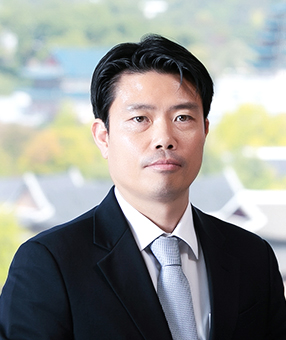1. Background and Progress
Though the world has turned a corner in the COVID-19 pandemic, which began in 2020, with the development of vaccines, substantial efforts are still necessary to bring the pandemic to a complete end as evidenced in the recent large-scale infections in India. Accordingly, India and South Africa, among others, proposed to waive the intellectual property rights related to COVID-19, including diagnostics methods, therapeutic methods, vaccines and protective gears, for three years to ensure an effective COVID-19 response, given the limitation on applying Article 27 (2) (Exceptional Restriction of Pharmaceutical Patents When Required for Public Health), Article 31 (Compulsory License) and Article 31bis of the Agreement on Trade-Related Aspects of Intellectual Property Rights (the “TRIPS”) of the World Trade Organization (the “WTO”).
In response to the above proposal, the countries with advanced pharmaceutical industries, such as the US, the European Union, the United Kingdom and Japan, were initially opposed. Big pharmaceutical companies such as AstraZeneca, Pfizer and Johnson & Johnson sent an open letter to President Joe Biden in March to oppose the intellectual property rights waiver and argued that the difficulty with vaccine supply is not rooted in the underlying patent but in the inadequate supply network and logistics. According to the big pharmaceutical companies, even if the patent is waived, because the number of companies with the requisite capacity to develop alternative vaccines based on the waived patent is limited, the vaccine supply would not significantly increase. On the other hand, more than 100 members of the US House of Representatives, together with Senator Bernie Sanders and several Democratic senators, had urged President Biden to support temporary waiver of patents related to the vaccines.
2. US Announcement of Support for Waiver Discussion and Response of Other Countries
During the WTO’s General Council Meeting held on May 5, 2021, the US Trade Representative Katherine Tai released a statement supporting the discussion on waiving the application of TRIPS to COVID-19 vaccine-related intellectual property rights and announced the US government’s intent to actively participate in text-based negotiations.1
Director-General Tedros Adhanom Ghebreyesus of the World Health Organization (the “WHO”) welcomed the US government’s support by praising that it had shown leadership in marking a “monumental moment in the fight against COVID-19.” China and Russia have also expressed support for waiving the vaccine patents.
The President of the European Commission Ursula Von der Leyen took a neutral stance by stating that the European Commission would actively participate in the discussion proposed by the US, but the governments in Germany and Switzerland, both with a strong pharmaceutical sector, are remaining steadfast in their opposition to the patent waiver. Further, the International Federation of Pharmaceutical Manufacturers and Associations (the “IFPMA”), where many of the key pharmaceutical companies are members, emphasized that while they agree with the goal of promptly and equally distributing COVID-19 vaccines worldwide, only practical and constructive conversations with the private sector can ensure equal access to vaccines. The IFPMA expressed its dissent to the vaccine patent waiver by referring to it as a simplified and incorrect answer to a complex issue.
3. Implications and Outlook
The US government’s announcement is a reversal from the previously skeptical view of the waiver request from developing countries, and appears to reflect the demand from civil society within the US and the Democratic members of Congress. However, given that the decision-making process in the WTO requires a consensus, with Germany, Japan and Switzerland maintaining their steadfast opposition to the proposal, a consensus for intellectual property rights waiver within the WTO is not likely to be reached. Furthermore, the text-based negotiations on the waiver would require substantial time.
However, it is nevertheless an important development that a discussion on protection of intellectual property rights over pharmaceutical products has been triggered not only in the international community but also the domestic media of each country as a result of the announcement made by the United States. If the concept of temporarily suspending intellectual property protection over pharmaceutical products to respond to public health dangers wins public support, the extension of the discussion is likely to lead to restriction of trade and intellectual property rights for national security and other public policy objectives.
Related Topics
#TRIPS #COVID-19 #International Trade #2021 Issue 2 #Newsletter









